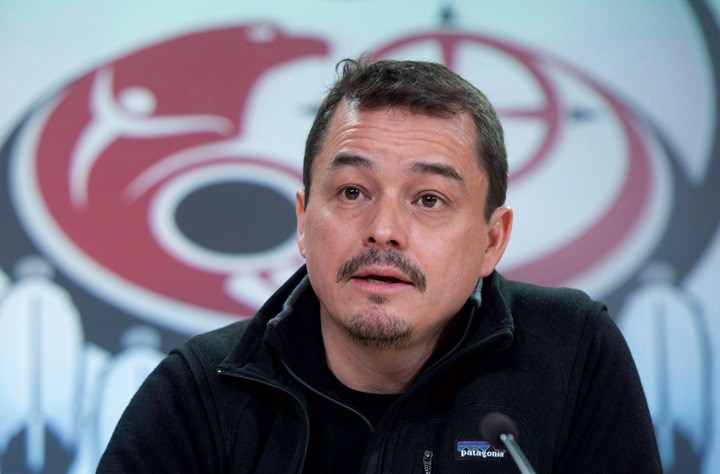OTTAWA -- A parliamentary report into missing and murdered indigenous women rejected numerous calls for a full public inquiry, setting off a firestorm of criticism Friday from opposition critics, First Nation leaders and human rights groups.
Liberal and NDP members who sat on the all-party panel issued their own dissenting reports, accusing the federal Conservatives of sanitizing the final report on an ongoing crisis that has caught the attention of the United Nations.
“This is a total travesty from the way that Parliament used to be able to work,” said Carolyn Bennett, the Liberal aboriginal affairs critic and the vice-chair of the committee examining the issue.
“Parliament used to be able to hear the witnesses and then honourably reflect what the witnesses said in the report.”
It's estimated there are hundreds of cases of missing and murdered aboriginal women in Canada dating back to the 1960s - officially as many as 600, and likely hundreds more unreported victims.
The report tabled Friday in the House of Commons says aboriginal women in Canada are more than three times as likely to be victimized as non-indigenous women.
Among its 16 recommendations, the report calls on the Conservative government to work with the provinces, territories and municipalities to create a public awareness and prevention campaign focusing on violence against aboriginal women and girls.
It also says Ottawa should continue to strengthen the criminal justice system to ensure that violent and repeat offenders serve appropriate sentences. As well, it calls for support for the families of victims, for aboriginal communities, for better police data and for action to reduce human trafficking.
The Liberals dismissed the recommendations, saying the families of the victims have been let down by the government's failure to right a “terrible and ongoing attack on social justice.”
Bennett mocked the “secretive” Conservative government for its failure to call a national inquiry, saying Tories view any mention of such public investigations as dirty words.
She added that the recommendations in the report don't reflect those made by victims' families and other interest groups during their testimony.
“When you look at the words in the recommendations that have been tabled today, you will find verbs like continue, maintain, continue, continue,” she said.
“That isn't what the families want to hear. They actually want action. They want things to happen. And, as you know, the No. 1 thing they wanted to have happen was a national public inquiry.”
The Conservatives, meantime, continued to resist calls for an inquiry, insisting they've taken dozens of measures to address violence against aboriginal women since they came to power in 2006. The Tories recently renewed funding to combat violence against aboriginal women and girls.
“I believe that this report will go further to take action,” Tory MP Stella Ambler, chair of the special committee, said in the House of Commons just before the report was tabled.
Justice Minister Peter MacKay echoed those sentiments.
“What we don't need now is to stop and talk and study. We need more action,” said MacKay.
Bennett, meantime, asked Ambler whether she honestly believed the report reflects witness testimony or was it “improperly influenced by the six parliamentary secretaries on the committee taking orders from the (Prime Minister's Office)?”
In its dissenting opinion, the Liberals said the report's recommendations were clearly the work of ministerial offices, since so many of them make reference to existing government programs.
The NDP's Jean Crowder, also a member of the special committee, called it appalling that the Conservatives produced “a sanitized report saying that everything is fine,” and renewed her calls for a public inquiry.
The victims' families pleaded in their testimony for the government to take “extraordinary actions to recognize this is a public emergency,” she added.
“A national inquiry would get to the roots of the systemic issues, the systemic racism and sexism that we're seeing here,” Crowder said.
“We need to pay attention to what they're asking us for.”
Claudette Dumont Smith, executive director of the Native Women's Association of Canada, warned of the dire consequences of inaction.
“If things don't change, aboriginal women will continue to go missing and be murdered and be regarded as second-class citizens,” she said.
Shawn Atleo, the national chief of the Assembly of First Nations, said his organization is planning a meeting on Monday to discuss an action plan in the wake of the report.
“We know we cannot achieve the change we need without a clear, unequivocal commitment and systemic change to ending violence and taking all the necessary steps to ensure indigenous women and girls are safe,” Atleo said in a statement.
“This report is disappointing to indigenous women and girls and all Canadians who stand with us.”
Human Rights Watch was equally critical of the report, saying it failed to recommend the necessary steps to stem the violence.
“The committee's weak recommendations represent an acceptance of the shocking status quo of violence against indigenous women and girls, even by the very people who are supposed to protect them,” said Meghan Rhoad, women's rights researcher at Human Rights Watch.
“The status quo is a state of constant insecurity for the indigenous women and girls who face threats to their lives and feel they have nowhere reliable to turn for protection.”
A United Nations human rights investigator called for a public inquiry last year during a fact-finding visit to Canada. James Anaya said such an inquiry would ensure a co-ordinated response to the problem and allow the families of victims to be heard.



